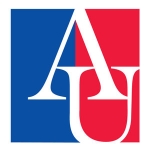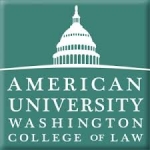Extractives Industry Groups Repel Anti-Corruption Rule
On Monday July 2, 2013, the honorable John D. Bates, federal judge for the District Court of Columbia, struck down Section 1504 of the Dodd-Frank Act, a regulatory provision aimed at decreasing corruption in developing countries. Known as the Cardin-Lugar provision, Section 1504 was part of a Congressional effort to regulate the U.S. financial industry domestically and abroad. Section 1504 would have required American resource extraction companies to disclose any payments of $100,000 or more that they made within a given fiscal year with the purpose of commercially developing oil, natural gas or mineral resources. The primary purpose of Section 1504 was to increase transparency and accountability with respect to the relationships between resource extractors and governments. If it had not been overruled, the provision would have required an estimated 1,100 companies to begin disclosing their records next year.
The court’s decision is seen as a significant victory for the American Petroleum Institute (API), a lobbying group that sued the U.S. government after the rule was adopted in August of 2012. The API argued that Section 1504 should be overruled because it would force businesses to disclose their proprietary secrets, infringe on their constitutional right to free speech, and burden them with significant costs. “The court has vacated the SEC’s requirement that U.S. companies report competitive information that can be used against them by global competitors,” said Harry Ng, API vice president and general counsel, adding that the rule would jeopardize current American transparency efforts by making American firms less competitive against foreign, state-owned oil companies. Ng also pointed out that several leading companies under the API umbrella are already engaged in the Extractives Industry Transparency Initiative (EITI), a set of standards currently being implemented in around three-dozen countries.
Despite the API’s criticism, many transparency activists and developmental groups continue to regard Section 1504 as an essential step towards decreasing corruption and ending the “resource curse” in resource-rich and governance-poor developing countries. “Needless to say we are incredibly disappointed with this decision, particularly given that the United States has been a leader on this issue through the passage of Section 1504,” stated Jana Morgan, a Washington campaigner with Global Witness, a D.C.-based advocacy group. “We are now seeing similar initiatives in the European Union and Canada, with transparency in resource payments becoming the new paradigm and the new standard for best business practices,” she added. Senator Ben Cardin, who co-authored Section 1504, expressed similar concerns over the potential broader effects of Tuesday’s court decision, stating that “the U.S. has been at the forefront of the transparency fight, and this decision will delay implementation of vital transparency rules.” Cardin further added, “Congress was clear in the letter and the spirit of the law that this information should be in the public domain. It is unfortunate that the court believes that company disclosures to the SEC should remain hidden.”
According to Judge John D. Bates, the Rule on Section 1504 Contained Significant Errors But the SEC Can Issue an Updated Rule on Section 1504.
The Federal District Court of Columbia’s decision on Monday revolved around the SEC’s interpretation of Section 1504. The Honorable Judge Bates ruled against the SEC’s interpretation of the provision after concluding that it had overreached the Congressional mandate in two primary ways. First, the Commission’s rule required companies to report all of the their payments connected to the commercial development of oil, natural gas, or mineral resources to the public, rather than simply requiring them to publish annual summary reports. Second, the rule did not provide any exemption for companies operating in countries where national laws prohibited such disclosures – Angola, Cameroon, China and Qatar are the four at issue in this case. According to the U.S. companies, Section 1504’s lack of an exemption for national rules would force them to pull out of certain countries, resulting in massive economic costs. Judge Bates noted that “the commission misread the statute to mandate public disclosure of the reports, and its decision to deny any exemption was, given the limited explanation provided, arbitrary and capricious.” Based on these two points, Judge Bates struck down the provision without discussing any additional arguments brought before the court, including the issue of constitutionality.
Although the SEC’s interpretation of Section 1504 has been struck down by the district court, the judgment is more technical than substantive and leaves room for the SEC to edit and re –issue the rule. “We strongly disagree with the court findings, but that said, the court has not precluded the possibility that the rules will be re-enacted in the same form but with a stronger justification,” said Gavin Hayman, the London-based director of campaigns for Global Witness. “Further, we note that nothing in the decision blocks the SEC from requiring public reporting or allows for exemptions from reporting. The oil industry has never been able to show, clearly, the existence of the host country prohibitions against payment disclosure.” Unless the Commission moves to appeal the judgment to a higher court, the district court’s decision will force the SEC to refashion the existing provision.
For further reading:
1- https://www.mainjustice.com/justanticorruption/2013/07/02/judge-vacates-sec-dodd-frank-rule-for-extractive-industries-remands-to-sec/
2- https://www.americanlawyer.com/digestTAL.jsp?id=1202611136774&The_Global_Lawyer_Will_the_US_Get_Back_on_the_Transparency_Train&slreturn=20130624134433
3- https://www.ipsnews.net/2013/07/u-s-court-overturns-key-extractives-transparency-rule/
4- https://www.pwc.com/us/en/forensic-services/assets/another-side-of-dodd-frank-understanding-section-1504-final.pdf


